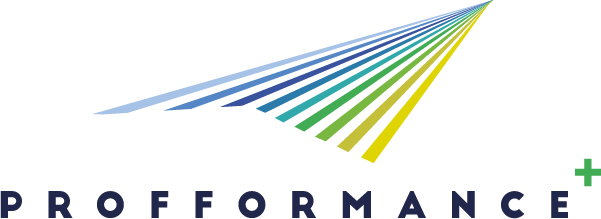CRIMCOMP
Comparative Criminal Law Learning Seminar
- 03 – Social sciences, journalism and information
2. Innovative teaching and learning
- Student partnerships/engagement in the teaching and learning practice
- Online and offline cooperative and collaborative work – developing engaging dynamics in the learning process
- Innovative multidisciplinary projects for students from different faculties
- Entrepreneurship projects, work-based learning
- Case-based teaching, case study – object of study to put into practice the knowledge acquired through a real, fictitious or adjusted description/case of reality.
CRIMCOMP embodies student partnerships/engagement in the teaching and learning practice as the composition of the student group and the mentoring and evaluation of their work by teachers do not follow the traditional model but focus on cooperative interaction with knowledge transfer. The method is used in the field of legal higher education, however the method can be implemented in connection with any topics of social science, taking into account that different regulatory models may exist for the same social problems in different countries. This methodology can also be applied in other training areas where different countries use different bodies of knowledge and different approaches to specific problems (teacher training, agriculture, economics, health organisation, sports financing, etc.). This good practice can lead to excellent skills and knowledge development by involving two countries, but three/four is considered ideal. In addition to the knowledge transfer linked to the thematic framework, the method has significant impacts and learning outcomes. 1) adaptation and inclusion of teammates with different knowledge, attitude and skill set backgrounds to work together 2) comparative work develops communication skills more strongly than other methods, as the participants have to understand their teammates from the other country 3) project work is carried out in a thematic framework with cross-country comparison 4) case-based teaching and learning is a method well suited to the field of law, both the development of cases and the solution of cases developed by others can be carried out as sub-projects in the chosen thematic framework 5) the students will be capable of problem-based learning and presenting their ideas (using logical argumentation techniques, presenting original ideas) and developing critical skills. 6) In addition to the above, an internationally composed "classroom" (seminar room) provides an opportunity for intercultural exchange, especially in the presence module. The good practice activities in the preparation module are static knowledge transfer, methodological grounding, development of preparatory materials and moot presentation; in the attendance module, mutual understanding and peer teaching, lectures, comparative exercises, project design with mentoring, project implementation in teamwork with tutor coaching, presentation of final results, evaluation.
Methodology
Tools, equipment, technology used
Outcomes and outputs, main results
Lessons learnt
Adaptability and sustainability of the best practice (for other institutions)
Promotion of best practice
Scope and impact
- Course/department level
- Faculty level
- Institutional level
- Cross-institutional level
- National level
- EU/EHEA/International level
6.1 Digitalization
- Outstanding, innovative, excellent practices of online / blended / hybrid learning
- Innovative, novel methodology in using digital tools/devices in teaching
- Digital skills development and assessment both general and profession-related, embedded in course design, in teaching and assessment
Reasoning: An example for hybrid learning practice with novel digital methodology is our online Criminal Law Escape Room – CLaER. In class, students open our web platform and following a police report they identify a suspect. Then, they write a charging proposal to be turned in to our online educational ecosystem Coospace. The same is used in Hungarian courts, and by embedding it in our course design and assessment, this develops our students’ digital skills and prepares them for praxis.
6.2 Internationalization
- Outstanding practices of international online collaborative learning
- Developing students' multicultural awareness
- Students engagement in international projects
- Courses implemented in international cooperation (projects, co-teaching, virtual/blended mobility, etc.)
- Courses offered to international multicultural students both online and offline
Reasoning: International collaboration is the foundation stone of CRIMCOMP. Students always work together in mixed groups of 3 (GER-HU-TR), first online and then in person. This way, personal and cultural barriers are already broken down online, and student engagement increases by the time they first meet offline. The venue of offline events is always rotated among the 3 countries, making 1 member of the group “the host” and 2 others getting experience abroad.
6.3 Inclusion and diversity, universal design
- Inclusive course design, universally designed divers activities to meet special students' needs
- Universally designed teaching material - adjustable for special needs
- Alternative, flexible assessment methods for students with special needs
- Senzitivizing students to consider special needs when practicing their profession
- Course includes hints on how the services/products of the profession could be universally designed/inclusive
Reasoning: Course materials are available as audio narrated presentations, containing both written and recorded text, thus making learning possible for visually and/or hearing impaired learners. Assessment is carried out digitally, in a way that is usually accessible to students with special needs, but alternatives and flexibility is always offered. Inclusion of special needs students senzitives others, but a special emphasis is laid on this in the curriculum regarding criminal procedure as well.
6.4 Sustainability
- Special courses reflecting to UN 2030 Sustainability goals, Green Deal - mini-courses, microcredentials
- Environmental attitude, skill development and assessment either general or profession-related
- Sustainability aspects are considered in all phases of the learning practice - "hidden curriculum"
Reasoning: At CRIMCOMP, we aim for maximal sustainability. The use of digital tools for teaching, training, learning and assessment reduces paper waste to almost zero. At in-person events, participants are gifted a reusable keep-cup to be used during the program to reduce plastic waste, and later, as a keepsake. CRIMCOMP is part of the curriculum as a project-based course. Students from various disciplines joined and are awarded micro-credential for completing the project-based course.

